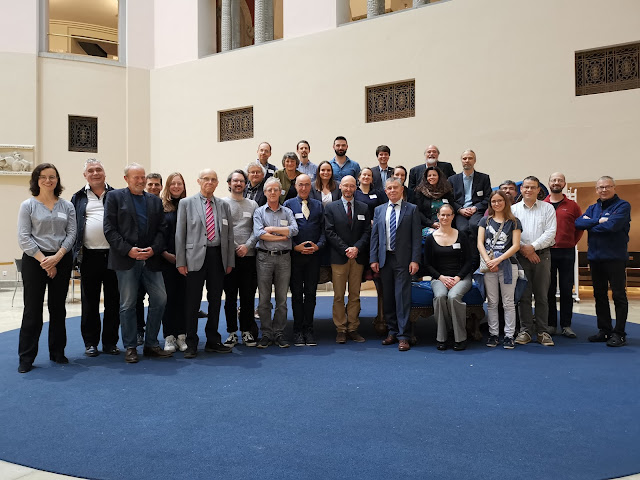Invitation Letter in Greek
The Hellenic Onomastic Society is pleased to announce the decision of the Board of Directors to organize the 8th Panhellenic Congress, which will be held in Andritsaina (Peloponnese, Greece) with the organizational assistance and sponsorship of Administration of Western Greece Region, Public Historical Library of Andritsaina, Swiss Association of Friends of the Public Historical Library of Andritsaina, Olympia Province's Federation of Cultural Associations,Youth Association of Andritsaina "Parrasioi" and G. & F. Kanellopoulos Heirs Foundation .
The theme of the Congress is "Onomastics of the Peloponnese", which concern the names of the wider Peloponnesian Area (forenames, surnames, eponyms, toponyms, etc.), without excluding papers focused on broader theoretical onomastic points.The overall objective of the congress is to promote the science of Onomastics in Greece and multiple possibilities for broader cooperation and interaction with such sciences as Ethnolinguistics, Classical Philology, Folklore, History, Archaeology, Literature, Linguistics, Geography, etc. The main aim of the congress is to collect, classify, analyse, study and present Peloponnesian names, which have not received the attention of researchers so far.
The Congress will be held at the Public Historical Library of Andritsaina from 28 to 30th July 2023.
Researchers interested in participating at the congress are invited to submit electronically by 31 January 2023, through sending title and abstract (up to 200 words) of their paper, as well as their full name, title, contact telephone number and e-mail address, to the members of the organising committee:
xtzavaras@yahoo.gr (Xenophon Tzavaras)
vrachion@hotmail.com (Maria Vrachionidou)
The duration of each presentation will be 20 minutes and additional 15 minutes will be allowed for discussion at the end of each session. The official languages are Greek and English.
The Proceedings of the Congress will be published in the 25th volume of the journal Ονόματα.
The members of the Congress Committees are the following:
Organizing Committee: Scientific Committee:
Vlachousi Antonia Vrachionidou Maria
Vrachionidou Maria Georgiadis Gerasimos
Papadopoulou Eleni Dalkos Christos
Roumeliotis Andreas Papadopoulou Eleni
Tzavaras Xenophon Roumeliotis Andreas
Sergis Manolis
Tzavaras Xenophon
Hidiroglou Alkistis













.png)




.webp)
.png)


